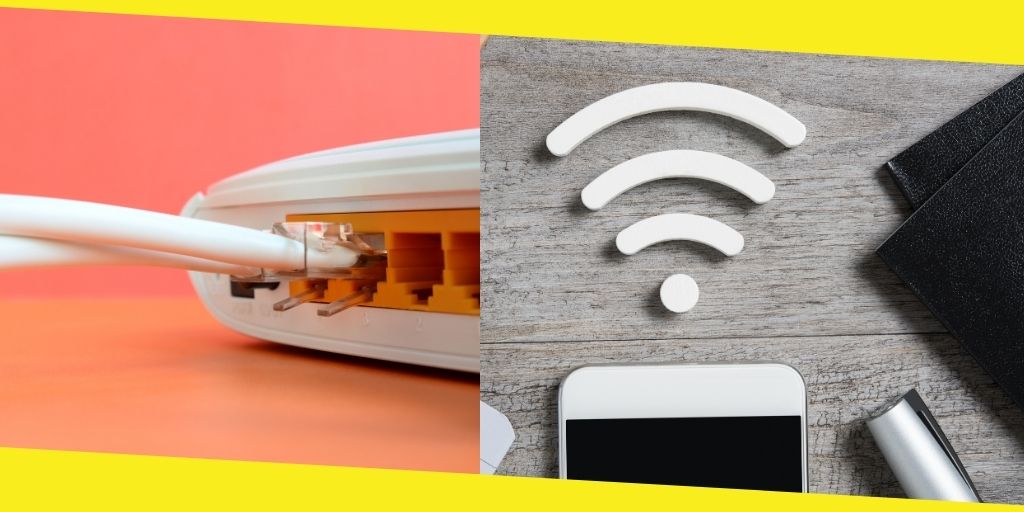Working from home or like to stream your favorite shows online? Your experience ultimately depends on the type of internet connection you have. You cannot use or watch a video on a choppy internet connection that offers unlimited internet but has a lot of lag. There is a vast difference between wired and wireless connections. What you choose between the two can make or break your online experience. Let’s understand more about each one of them and also talk about their differences.

Wired Internet Connection
Wired internet connection is where the system uses an Ethernet cable to connect the router with a computer system or a TV set. This is known as a direct connection and provides astounding internet speeds. You get what you sign up for unless there are issues with the Ethernet cable or the service provider.
Wireless Internet Connection
Wireless internet connection is when the wired connectivity ends at the router. In this kind of arrangement, the router transmits the signal through the air to all the connected devices at home or works. All the tools should have the capability to receive Wi-Fi signals. Devices connected to a wireless network include smart phones, computers, TV, tablets, video game consoles, home security systems, personal assistants, and more.
Difference between Wired and Wireless Internet Connection
1. Speed
Wired internet connections are faster than wireless connections. The wired system is better equipped to carry comprehensive data at high rates as compared to wireless connections. So, you can never optimize your wireless connection to compete with a wired setup, no matter what you do.
2. Security
Wired internet connections are more secure than wireless systems. The wired connection can only be hacked by tapping the wire, but data security is a tricky job with a wireless connection.
3. Price
Wired internet connections are cheaper than wireless systems because the equipment needed in the latter method is expensive. Wired internet connection needs wires and routers, while the wireless connection needs wireless routers, wireless access points, adaptors, subscriber stations, etc.
4. Bandwidth
Wired connections offer a high bandwidth as compared to the wireless connections. So, a wireless system may falter when more people/devices connect to it simultaneously while a wired network will handle everyone like a champion.
5. Installation
Wireless internet connections are easy and quick to install. Installing a wired network can become cumbersome and may need a few days to complete if the cable laying procedure needs permissions.
6. Mobility
The wired network has limited mobility. It can go only as far as the cable does. Wireless internet connections offer better mobility because they can operate in the entire network area.
Wired and wireless internet connections have their own set of pros and cons. There is no saying which the best is as they are ideal for different types of setups. A wired connection is the best when you want to work with a massive amount of data, while a wireless system will work fine if you are looking at a medium amount of data and better mobility. Before you call up your internet service provider, analyze your needs from the internet connection and then place your demand accordingly.